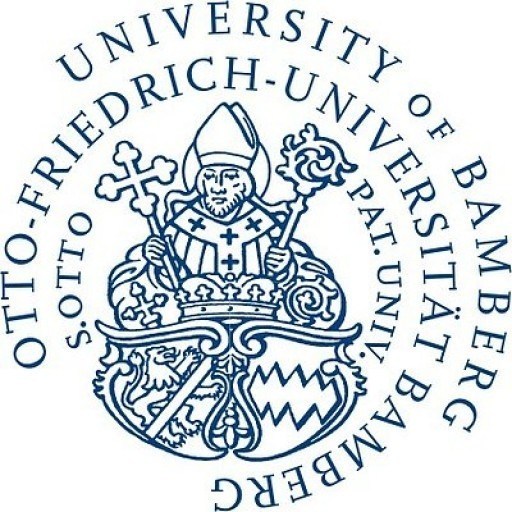The Medieval and Early Modern German Studies programme at the University of Bamberg offers students an in-depth exploration of the rich cultural, literary, linguistic, and historical developments of German-speaking regions from the Middle Ages through the Early Modern period. This interdisciplinary programme combines rigorous academic research with a comprehensive curriculum designed to develop a deep understanding of the historical contexts, textual traditions, and societal transformations that have shaped German history and culture from roughly the 12th to the 17th centuries. Students will engage with a broad spectrum of primary sources, including medieval manuscripts, early modern print materials, and archival documents, while also critically analyzing literature, philosophy, and art from these periods.
The programme emphasizes language proficiency, advanced textual analysis, and contextual understanding, enabling students to interpret historical documents and literary texts in their original languages. Courses cover topics such as medieval German literature, historical linguistics, the development of the German language, and key historical events that influenced cultural changes. Furthermore, students will examine the socio-political structures, religious movements, and intellectual currents of the time, providing a holistic view of the periods under study. The programme also promotes interdisciplinary approaches by incorporating insights from history, philology, cultural studies, and art history.
Students have the opportunity to participate in seminars, workshops, and research projects, fostering critical thinking and scholarly skills essential for academic or professional careers in research, education, museum work, or cultural management. The University of Bamberg’s vibrant academic community provides an excellent environment for dialogue and collaboration with experts in medieval and early modern studies. Graduates of this programme will be well-prepared to pursue postgraduate studies or careers that require a profound understanding of Germany’s historical and cultural heritage. The degree programme underscores the importance of historical continuity and change, celebrating Germany’s rich medieval and early modern legacies and their influence on contemporary society.
Educational organisation
The programme comprises 120 ECTS credits, which corresponds to a period of study of at least four semesters or two years. 60 ECTS credits have to be earned at the home university. ECTS credits are allocated as follows:Compulsory subjects (total 75 ECTS):
- Module Grundlagenmodul (10 ECTS)
- Module Ältere deutsche Literaturgeschichte (20 ECTS)
- Module Deutsche Sprachgeschichte (20 ECTS)
- Module Forschung (10 ECTS)
- Module Praxis (10 ECTS)
- Module Profilmodul (5 ECTS)
- Free electives (15 ECTS)
- Thesis and defence (30 ECTS)
- Thesis (24 ECTS)
- Defence (6 ECTS)
TOTAL (120 ECTS)
Part-time study is possible with the exception of the semester spent at the partner university.
This is a joint degree programme.
Study abroad unit(s)
Students are required to complete at least 30 ECTS credits at the respective partner university within the consortium. Together with an academic adviser, students draw up a study plan at the beginning of their studies for the semester abroad.Students planning to study abroad in their second semester or the following summer semester must develop programmes of study for that purpose with the coordinator at their home institution.
Internships
An internship of 300 hours in libraries, archives, museums, etc.Forms of assessment
Examinations will take various forms depending on the aims and content of the courses. These include written and oral exams, seminar papers and presentations. Specific examination criteria will be specified in the syllabus of each course at the beginning of the semester. The grading scale is in accordance with the ECTS system.Course objectives
The educational objective of this programme is the ability to(a) analyse the German language and literature of the Middle Ages and the early modern period, and their relevance and development up to the present
b) apply interdisciplinary scientific methods in the area of Medieval and Early Modern German Studies
c) represent and convey research into Medieval and Early Modern German Studies to the general public
Language requirements
German: DSH 2Latin and another foreign language
Required DSH / TestDaF
YesAcademic requirements
Admission to this Master's programme is granted to persons who have completed at least the equivalent of a Bachelor's or Diploma degree which includes minimum 30 ECTS in German Studies.Graduates from other fields of study can be admitted if the completed programme is judged to be equivalent in the regular admission procedure of the university to which the student applies.
Enrolment fees
Approx. 75 EUR (the fee includes a semester ticket covering public transport in and around Bamberg)Costs of living
Per month as follows:- Bamberg/Germany - 650 EUR
- Graz/Austria - 800 EUR
Job opportunities
Finding a suitable job is not easy. If not stated otherwise, consortium partners have no facilities to help students secure a job and students should not rely on getting a job when budgeting for their stay.Bamberg/Germany: EU students can take a job while studying in Bamberg. Non-EU students may work only three months per year.
Graz/Austria: in principle, students can take a job. However, regulations make finding a job very difficult.
Arrival support
Students will be provided with support via web, e-mail and telephone concerning general information such as visa application, letters of invitation, contacts with embassies, residence permit, health services and insurance policy, logistics and financial services, academic and social life, as well as accommodation.Services and support for international students
Mentoring - students will be teamed with a mentor, a local student who provides support and guidance during the first months at the university.Computing facilities - students will have free access to the internet on campus (computing services, libraries, and departments).
Language - language centres at the consortium partners offer the opportunity to learn the national language as well as other languages. Intensive courses are offered before the start of the semester, as well as semester courses at various levels. It is also possible to study the language together with a local tandem partner.
Cross-cultural communication - the consortium partners attach great importance to cross-cultural communication in view of the cultural integration of both students and scholars. Furthermore, with a better understanding of intercultural aspects, students as well as scholars will be more successful in their studies and work.
Students with special needs - special support networks are set up at all consortium partners to better aid students and scholars with special needs in their everyday lives.








